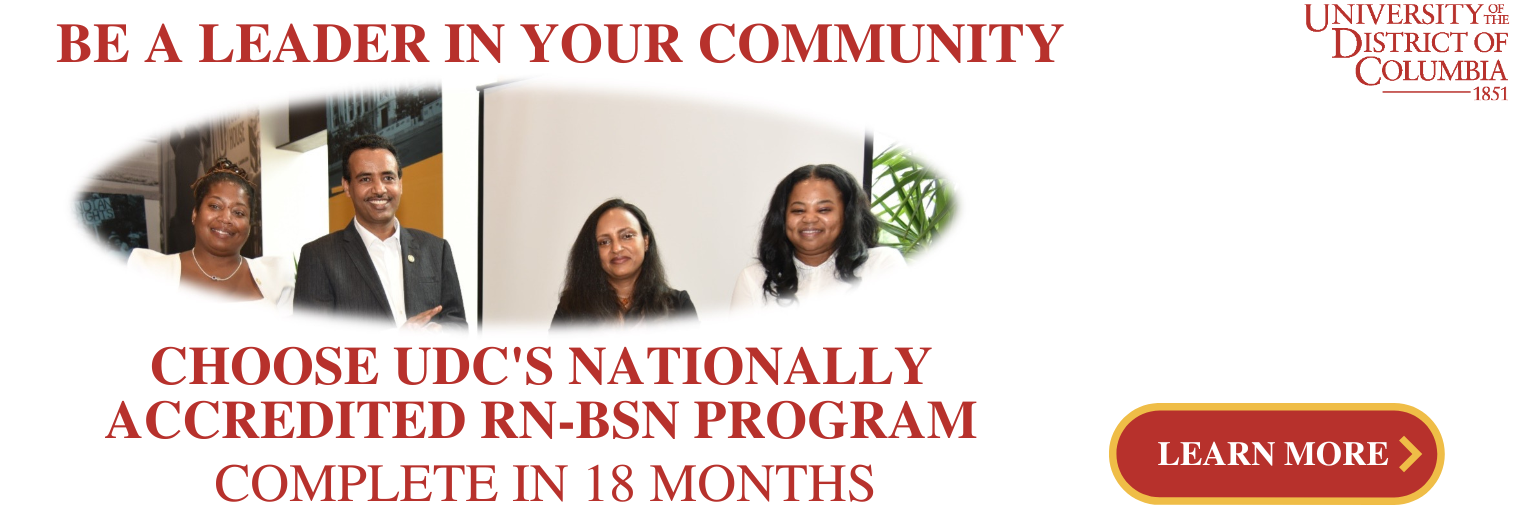










Welcome to the DC Master Naturalist Program!
ABOUT MASTER NATURALIST PROGRAM
The DC Master Naturalist (DCMN) volunteer training program trains volunteers in environmental conservation, environmental education, and citizen science. Participants who graduate from this program become certified Master Naturalists who volunteer in their communities and provide education, outreach, and service around beneficial management of natural resources and natural and open spaces in the District.
MISSION
To train volunteers in environmental education and conservation practices, including citizen science, and to engage the community in local nature.
The priorities of the District drive content for the program. The program is open to residents in all eight wards and provides instruction by local DC experts. Volunteer hours are provided within the District.
The program is guided by UDC’s Equity Imperative and the sustainability goals of the District of Columbia.
WHO CAN BECOME A MASTER NATURALIST?
Any District of Columbia resident, 18 years or older, who wants to learn more about environmental conservation and volunteer to share this knowledge in their community.
WHAT ARE THE STEPS TO BECOMING A MASTER NATURALIST?
- Application Process | Spaces are limited. Participants submit an application form during the spring application process to the Master Naturalist Coordinator. Applications are sorted by ward so that there is an equal representation from throughout the District and evaluated using a rubric that considers volunteer interest and a commitment to urban ecological conservation. The applicant is notified by the Master Naturalist Coordinator whether or not they have been selected as a DCMN Trainee.
- Trainee| The next stage of the program is approximately 30 hours of instruction. Master Naturalist Trainees engage in instruction by UDC staff and local experts, covering a variety of urban environmental and conservation subjects. Once the instruction has been completed, participants are considered Master Naturalist Interns.
- Intern |Master Naturalist Interns then complete at least 40 hours of approved volunteer service within twelve months of completing training to achieve the status of Master Naturalist.
- Certified Master Naturalist| After completing those 40 volunteer hours, participants become Certified Master Naturalists. To remain active, Certified Master Naturalists must: provide at least 20 hours of certified volunteer service and complete at least 10 hours of continuing education each calendar year.
ABOUT THE VOLUNTEER TRAINING
The DC Master Naturalist Training gives students an overview of urban environmental education and conservation. The training is divided into two phases: the first is 30 hours of in-person learning, and the second is 40 hours of volunteer experience. The curriculum is focused on urban environmental education and conservation with practical application to the DC setting.
The first phase of the training runs for 5-10 weeks. Most classes are held on weeknights from 6 to 9 pm at the UDC Van Ness campus and may include local field trips. At the end of the 30 hours of instruction, students are considered Interns and go on to the next phase of training.
The next phase of the training is practical and hands-on. The aim is for Interns to have practical, hands-on experience and develop skills and confidence. We believe that students develop a deeper understanding through practice. Interns select a couple of topics they are most interested in and build a plan to volunteer at different projects around the District to gain more knowledge and put their skills into practice. Once the Interns complete their volunteer activities satisfactorily, they become certified Master Naturalists. In order to maintain their active status, Master Naturalists are required to complete twenty volunteer hours and ten continuing education hours per calendar year.
CURRICULUM
Participants will graduate from the DC Master Naturalist program with sufficient skills to volunteer at various public and private environmental conservation sites and with our partner agencies around the district. They will have a good understanding of urban environmental conservation background and practice. They will feel confident in their ability to answer questions from the public about different aspects of environmental conservation and also have a deep understanding of a handful of chosen topics.
The curriculum includes:
- Natural history
- Urban ecology
- Microorganisms, fungi, and plants
- Invertebrates
- Fish
- Birds
- Amphibians and reptiles
- Mammals
- Trees, forests, and woodlands
- Wetlands and watersheds
- Urban landscapes and invasive species
- Rivers and streams
- Monitoring and citizen science
- Urban wildlife management
- City Nature Challenge
Partner agencies engaged in conservation include:
- UDC Food Hubs
- Hillwood Estate and Gardens
- Capital Nature
- Rock Creek Conservancy
- Casey Trees
- DOEE
- Smithsonian
- Friends of Oxon Run
- Rock Creek Songbird Conservancy
- Ward 8 Woods
- Others
APPLICATION PROCESS
Click here to apply for the Spring 2025 course. For more info, please contact Project Specialist in Urban Ecology Dr. Kelly Russo-Petrick at kelly.russopetrick@udc.edu or 202-695-9744.
COST
The cost of the DC Master Naturalist Training is $250, to be paid by check or money order. This amount covers program materials and payment for the instructors.
Financial aid will be offered to those who require assistance. Please indicate the need by checking the appropriate box on the application form.
VOLUNTEER
Golden Volunteer FAQs (see attachment)
SELECT STUDENT RESOURCES
Plant Invaders of Mid-Atlantic Natural Areas
Native Plants for Wildlife Habitat and Conservation Landscaping